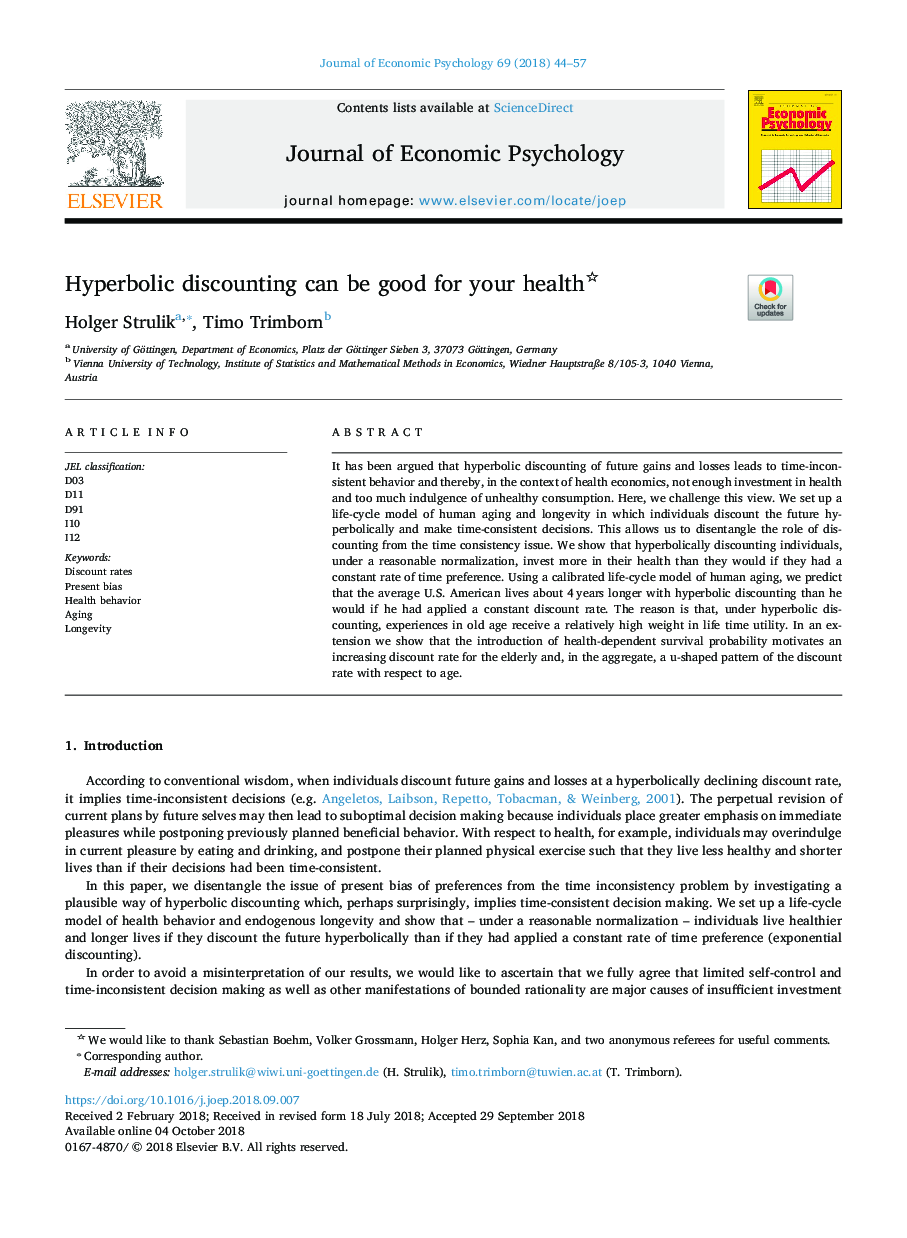| Article ID | Journal | Published Year | Pages | File Type |
|---|---|---|---|---|
| 11263139 | Journal of Economic Psychology | 2018 | 14 Pages |
Abstract
It has been argued that hyperbolic discounting of future gains and losses leads to time-inconsistent behavior and thereby, in the context of health economics, not enough investment in health and too much indulgence of unhealthy consumption. Here, we challenge this view. We set up a life-cycle model of human aging and longevity in which individuals discount the future hyperbolically and make time-consistent decisions. This allows us to disentangle the role of discounting from the time consistency issue. We show that hyperbolically discounting individuals, under a reasonable normalization, invest more in their health than they would if they had a constant rate of time preference. Using a calibrated life-cycle model of human aging, we predict that the average U.S. American lives about 4â¯years longer with hyperbolic discounting than he would if he had applied a constant discount rate. The reason is that, under hyperbolic discounting, experiences in old age receive a relatively high weight in life time utility. In an extension we show that the introduction of health-dependent survival probability motivates an increasing discount rate for the elderly and, in the aggregate, a u-shaped pattern of the discount rate with respect to age.
Related Topics
Social Sciences and Humanities
Business, Management and Accounting
Marketing
Authors
Holger Strulik, Timo Trimborn,
